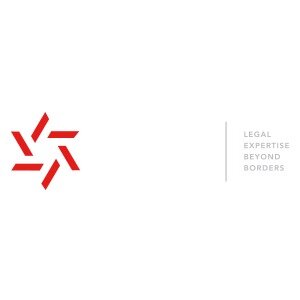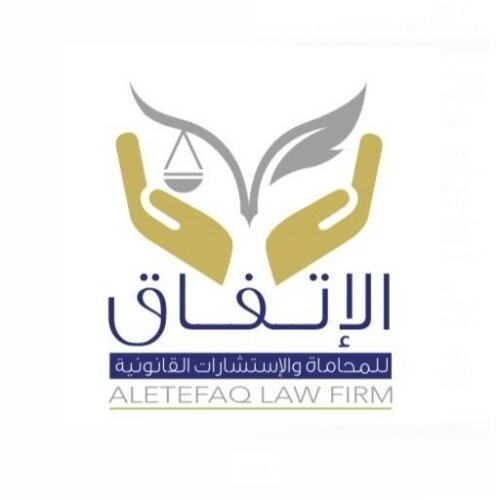Best Antitrust Litigation Lawyers in Qatar
Share your needs with us, get contacted by law firms.
Free. Takes 2 min.
Or refine your search by selecting a city:
List of the best lawyers in Qatar
About Antitrust Litigation Law in Qatar
Antitrust litigation in Qatar concerns the enforcement of laws that protect fair competition and prevent anti-competitive conduct in the marketplace. These laws are designed to promote a healthy business environment, encourage innovation, and ensure consumers have access to a variety of choices at fair prices. In Qatar, antitrust law is implemented through various statutes and regulatory bodies that address issues such as abuse of dominance, cartels, price fixing, and other restrictive practices. Businesses and individuals operating within Qatar’s market must comply with these regulations or risk facing legal proceedings and significant penalties.
Why You May Need a Lawyer
Antitrust litigation can be complex and challenging, especially due to the technical and commercial elements involved. You may need a lawyer in the following situations:
- If your business is being investigated for allegedly violating competition laws
- If you suspect that a competitor is engaging in anti-competitive behavior that harms your business
- When considering any form of merger, acquisition, or joint venture that may raise competition concerns
- If your business has been accused of practices such as price fixing, market sharing, or abuse of dominant position
- To assess the legality of certain commercial agreements or business strategies
- If you receive inquiries or notifications from the relevant Qatari authorities about competition issues
- To challenge restrictive contracts or trade practices that limit your business activities
- For guidance during compliance audits or training for your staff regarding antitrust regulations
Engaging a lawyer ensures that your rights are protected and that you comply with all applicable laws and regulations in Qatar.
Local Laws Overview
Qatar’s primary legal framework for antitrust and competition matters is Law No. 19 of 2006 on the Protection of Competition and Prevention of Monopolistic Practices, commonly known as the Competition Law. Key features include:
- Prohibition of Anti-Competitive Agreements: Agreements between businesses that restrict competition, such as price fixing, bid rigging, or division of markets, are generally prohibited.
- Abuse of Dominant Position: Companies holding a dominant position in a market cannot misuse their power to eliminate or restrict competition.
- Merger Control: Certain mergers and acquisitions must be notified to - and cleared by - the competent authorities to prevent any substantial lessening of competition in the market.
- Penalties and Enforcement: Violations can lead to administrative and criminal penalties, including fines, corrective actions, and potentially the dissolution of anti-competitive agreements.
- Regulatory Oversight: The Competition Protection and Anti-Monopoly Committee under the Ministry of Commerce and Industry is responsible for enforcement and supervision of the competition laws in Qatar.
It is essential for businesses operating in Qatar to be aware of their obligations under these laws and to seek proper legal guidance when engaging in commercial activities that may raise competition concerns.
Frequently Asked Questions
What types of conduct are considered anti-competitive under Qatari law?
Anti-competitive conduct includes price fixing, limiting production, dividing markets, bid rigging, and abusing a dominant market position to harm competition or consumers.
Who enforces antitrust laws in Qatar?
The Competition Protection and Anti-Monopoly Committee under the Ministry of Commerce and Industry enforces antitrust regulations in Qatar.
What are the penalties for violating antitrust laws?
Penalties may include hefty fines, corrective measures, compensation for damages, and in some instances, criminal sanctions.
Are all agreements between competitors illegal?
Not all agreements are illegal. Only those that restrict or distort competition, such as price fixing or dividing markets, are prohibited.
Can a company with a dominant market position face penalties even if acting legally?
Holding a dominant position is not illegal itself. However, abusing that position to limit competition or harm consumers is prohibited and subject to penalties.
How do I find out if my business activity requires approval under antitrust regulations?
Consult with a legal expert or notify the relevant governmental committee to determine if your merger, acquisition, or agreement is subject to approval under Qatari competition law.
What should I do if I suspect a competitor is violating antitrust rules?
You can file a complaint with the Competition Protection and Anti-Monopoly Committee, and seek advice from a specialized lawyer to consider available legal options.
How long does antitrust litigation typically last in Qatar?
The duration can vary significantly based on the complexity of the case. Investigations and proceedings may take several months to a few years.
Can foreign companies be subject to Qatari antitrust laws?
Yes, if their activities impact competition within Qatar's markets, foreign entities can be subject to Qatari antitrust regulations.
Is it possible to appeal decisions made by the Competition Protection and Anti-Monopoly Committee?
Yes, parties affected by a decision may appeal to the competent judicial authorities in accordance with Qatar’s legal procedures.
Additional Resources
To gain more information and guidance on antitrust litigation and related matters in Qatar, consider consulting the following resources:
- Ministry of Commerce and Industry - Competition Protection and Anti-Monopoly Committee
- Qatar Chamber of Commerce and Industry
- Qatar Financial Centre Regulatory Authority
- Legal consultancies and law firms with expertise in corporate and competition law
- Academic publications from local universities on competition and commercial law
These organizations and resources can provide crucial information, guidance, and support for understanding and addressing competition law matters in Qatar.
Next Steps
If you believe you need legal assistance with an antitrust litigation matter in Qatar, consider the following actions:
- Document any relevant business practices or communications that may be related to anti-competitive behavior
- Contact a qualified lawyer or law firm specializing in antitrust and competition law in Qatar
- Request an initial consultation to evaluate your situation and discuss possible strategies
- If your business is facing an investigation, respond promptly and cooperate with authorities while seeking guidance from your legal counsel
- Stay informed about your rights and obligations under Qatari competition law
Taking early and informed action can significantly help protect your interests and ensure compliance with the laws governing fair competition in Qatar.
Lawzana helps you find the best lawyers and law firms in Qatar through a curated and pre-screened list of qualified legal professionals. Our platform offers rankings and detailed profiles of attorneys and law firms, allowing you to compare based on practice areas, including Antitrust Litigation, experience, and client feedback.
Each profile includes a description of the firm's areas of practice, client reviews, team members and partners, year of establishment, spoken languages, office locations, contact information, social media presence, and any published articles or resources. Most firms on our platform speak English and are experienced in both local and international legal matters.
Get a quote from top-rated law firms in Qatar — quickly, securely, and without unnecessary hassle.
Disclaimer:
The information provided on this page is for general informational purposes only and does not constitute legal advice. While we strive to ensure the accuracy and relevance of the content, legal information may change over time, and interpretations of the law can vary. You should always consult with a qualified legal professional for advice specific to your situation.
We disclaim all liability for actions taken or not taken based on the content of this page. If you believe any information is incorrect or outdated, please contact us, and we will review and update it where appropriate.
Browse antitrust litigation law firms by city in Qatar
Refine your search by selecting a city.

















